Verhalten in Organisationen und Unternehmenserfolg
Die Forschungsgruppe untersucht, wie sich nicht-monetäre Arbeitsplatzcharakteristika (z. B. Mitsprache am Arbeitsplatz oder die wahrgenommene Sinnhaftigkeit der Arbeitsaufgabe) und Managerentscheidungen (z. B. bezogen auf Entlassungen) auf die Motivation der Arbeitnehmer auswirken. Der methodische Schwerpunkt der Gruppe liegt auf der Durchführung von (Feld-)Experimenten. Diese ermöglichen nicht nur eine exakte Messung des Arbeitseinsatzes; vor allem können Leistungsänderungen durch konstant gehaltene Bedingungen allein auf die Intervention des Experimentators zurückgeführt werden.
Forschungscluster
Produktivität und InstitutionenIhr Kontakt

- Abteilung Gesetzgebung, Regulierung und Faktormärkte
Referierte Publikationen
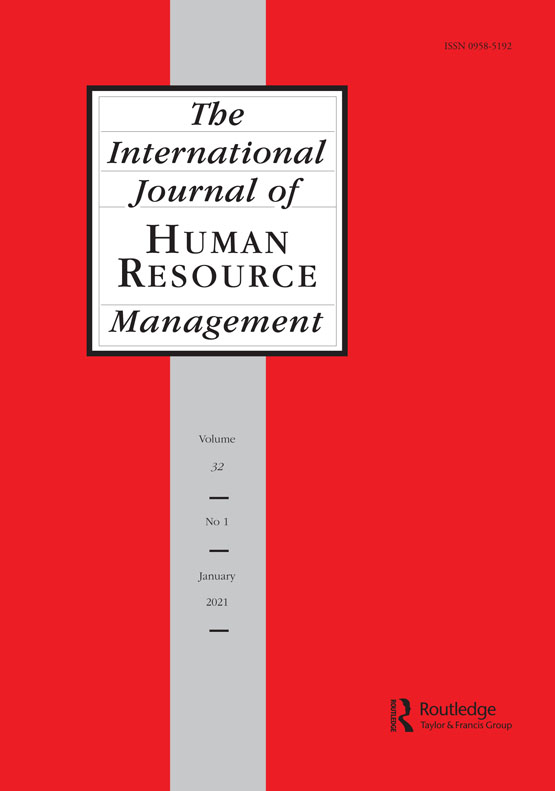
The Chief Human Resource Officer in the C-suite: Peer Prevalence and Environmental Uncertainty
in: International Journal of Human Resource Management, Nr. 11, 2024
Abstract
<p>The chief human resource officer (CHRO) role elevates people-related matters to the apex of the firm. Why do some companies’ leading management teams place so much emphasis on human resources while others do not? The present study argues that CHROs’ presence in the C-suite is driven by firms’ imitation of industry peers’ leadership structures as a response to uncertainty. The investigation also sheds light on the moderating role of environmental factors that can influence mimetic isomorphism in HR leadership. Through a longitudinal analysis of large listed firms between 2006 and 2020, the study shows a positive relationship between the prevalence of the CHRO position among firms’ peers and a focal firm having a CHRO in its top management. The results demonstrate that certain types of uncertainty serve as boundary conditions for such copying actions: Industry growth strengthens mimicking behavior while industry dynamism weakens it. There is no clear evidence for the moderating role of industry competition. The findings contribute a neo-institutional view of human resource structures in the top management and strengthen the bond between the strategy and human resource literature.</p>

Are Rural Firms Left Behind? Firm Location and Perceived Job Attractiveness of High-skilled Workers
in: Cambridge Journal of Regions, Economy and Society, Nr. 1, 2024
Abstract
<p>We conduct a discrete choice experiment to investigate how the location of a firm in a rural or urban region affects the perceived job attractiveness for university students and graduates and, therewith, contributes to the rural–urban divide. We characterize the attractiveness of a location based on several dimensions (social life, public infrastructure and connectivity) and vary job design and contractual characteristics of the job. We find that job offers from companies in rural areas are generally considered less attractive, regardless of the attractiveness of the region. The negative perception is particularly pronounced among persons of urban origin and singles. In contrast, for individuals with partners and kids this preference is less pronounced. High-skilled individuals who originate from rural areas have no specific regional preference at all.</p>
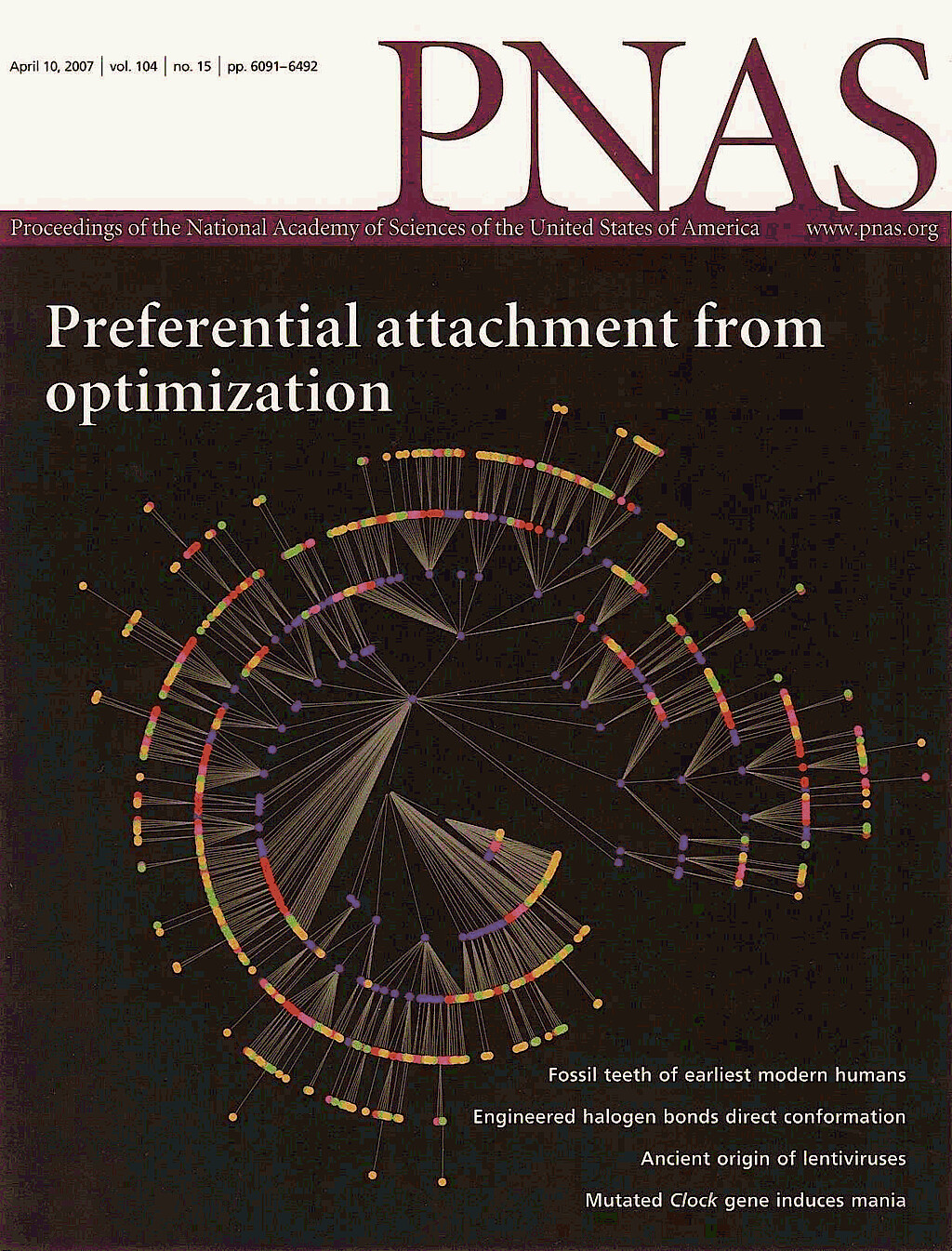
Competition and Moral Behavior: A Meta-Analysis of Forty-Five Crowd-Sourced Experimental Designs
in: Proceedings of the National Academy of Sciences of the United States of America (PNAS), Nr. 23, 2023
Abstract
Does competition affect moral behavior? This fundamental question has been debated among leading scholars for centuries, and more recently, it has been tested in experimental studies yielding a body of rather inconclusive empirical evidence. A potential source of ambivalent empirical results on the same hypothesis is design heterogeneity—variation in true effect sizes across various reasonable experimental research protocols. To provide further evidence on whether competition affects moral behavior and to examine whether the generalizability of a single experimental study is jeopardized by design heterogeneity, we invited independent research teams to contribute experimental designs to a crowd-sourced project. In a large-scale online data collection, 18,123 experimental participants were randomly allocated to 45 randomly selected experimental designs out of 95 submitted designs. We find a small adverse effect of competition on moral behavior in a meta-analysis of the pooled data. The crowd-sourced design of our study allows for a clean identification and estimation of the variation in effect sizes above and beyond what could be expected due to sampling variance. We find substantial design heterogeneity—estimated to be about 1.6 times as large as the average standard error of effect size estimates of the 45 research designs—indicating that the informativeness and generalizability of results based on a single experimental design are limited. Drawing strong conclusions about the underlying hypotheses in the presence of substantive design heterogeneity requires moving toward much larger data collections on various experimental designs testing the same hypothesis.

The Effect of Community Managers on Online Idea Crowdsourcing Activities
in: Journal of the Association for Information Systems, Nr. 1, 2022
Abstract
In this study, we investigate whether and to what extent community managers in online collaborative communities can stimulate community activities through their engagement. Using a novel data set of 22 large online idea crowdsourcing campaigns, we find that moderate but steady manager activities are adequate to enhance community participation. Moreover, we show that appreciation, motivation, and intellectual stimulation by community managers are positively associated with community participation but that the effectiveness of these communication strategies depends on the form of participation managers wish to encourage. Finally, the data reveal that community manager activities requiring more effort, such as media file uploads vs. simple written comments, have a stronger effect on community participation.
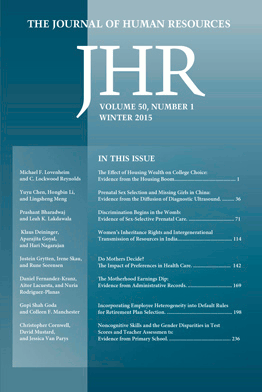
The Urban Wage Premium in Imperfect Labor Markets
in: Journal of Human Resources, April 2022
Abstract
Using administrative data for West Germany, this paper investigates whether part of the urban wage premium stems from greater competition in denser labor markets. We show that employers possess less wage-setting power in denser markets. We further document that an important part of the observed urban wage premia can be explained by greater competition in denser labor markets.
Arbeitspapiere
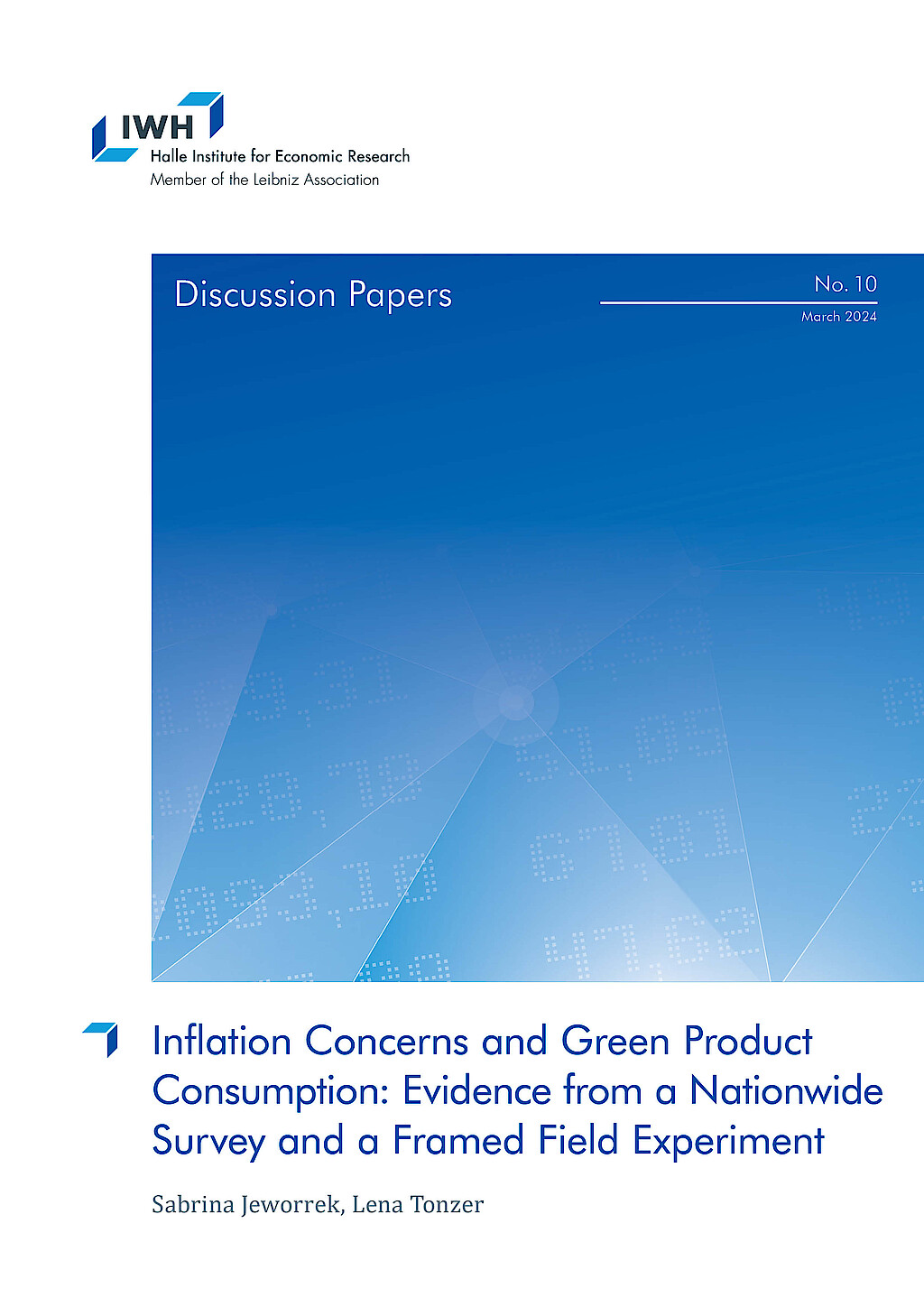
Inflation Concerns and Green Product Consumption: Evidence from a Nationwide Survey and a Framed Field Experiment
in: IWH Discussion Papers, Nr. 10, 2024
Abstract
<p>Promoting green product consumption is one important element in building a sustainable society. Yet green products are usually more costly. In times of high inflation, not only budget constraints but also the fear that prices will continue to rise might dampen green product consumption and, hence, limit the effectiveness of exerted efforts to promote sustainable behaviors. To test this suggestion, we conducted a Germany-wide survey with almost 1,200 respondents, followed by a framed field experiment (N=500) to confirm causality. In the survey, respondents’ stated “green” purchasing behavior is, as to be expected, positively correlated with concerns about climate change. It is also negatively correlated with concerns about future inflation and energy costs, but after controlling for observable characteristics such as income and educational level only the correlation with concerns about future prices remains significant. This result is driven by individuals with below-median environmental attitude. In the framed field experiment, we use the priming method to manipulate the saliency of inflation concerns. Whereas sizably relaxing the budget constraint (i.e., by 50 percent) has no impact on the share of organic products in participants’ baskets, the priming significantly decreases the share of organic products for individuals with below-median environmental attitude, similar to the survey data.</p>
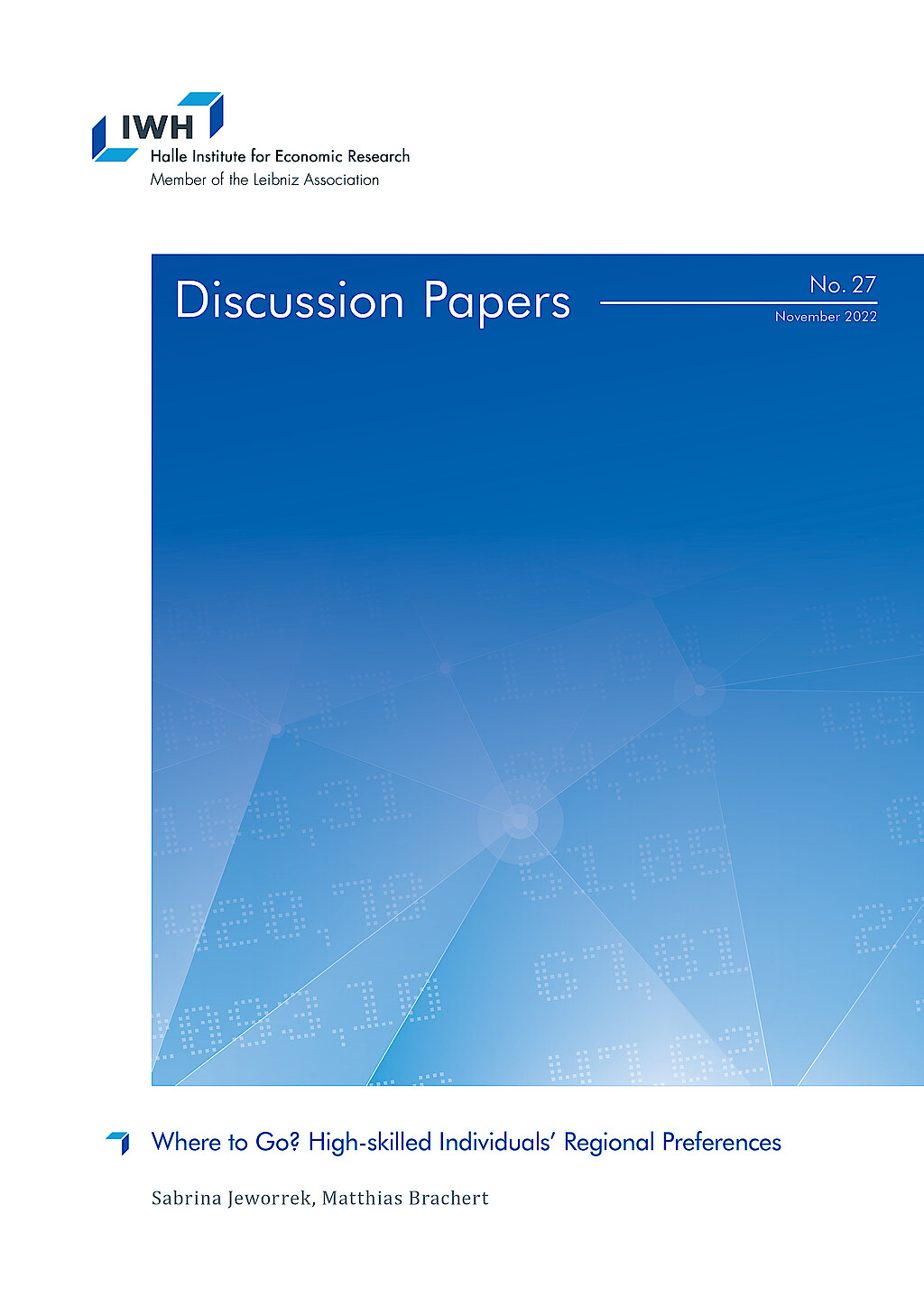
Where to Go? High-skilled Individuals’ Regional Preferences
in: IWH Discussion Papers, Nr. 27, 2022
Abstract
We conduct a discrete choice experiment to investigate how the location of a firm in a rural or urban region affects job attractiveness and contributes to the spatial sorting of university students and graduates. We characterize the attractiveness of a location based on several dimensions (social life, public infrastructure, connectivity) and combine this information with an urban or rural attribution. We also vary job design as well as contractual characteristics of the job. We find that job offers from companies in rural areas are generally considered less attractive. This is true regardless of the attractiveness of the region. The negative perception is particularly pronounced among persons with urban origin and singles. These persons rate job offers from rural regions significantly worse. In contrast, high-skilled individuals who originate from rural areas as well as individuals with partners and kids have no specific preference for jobs in urban or rural areas.
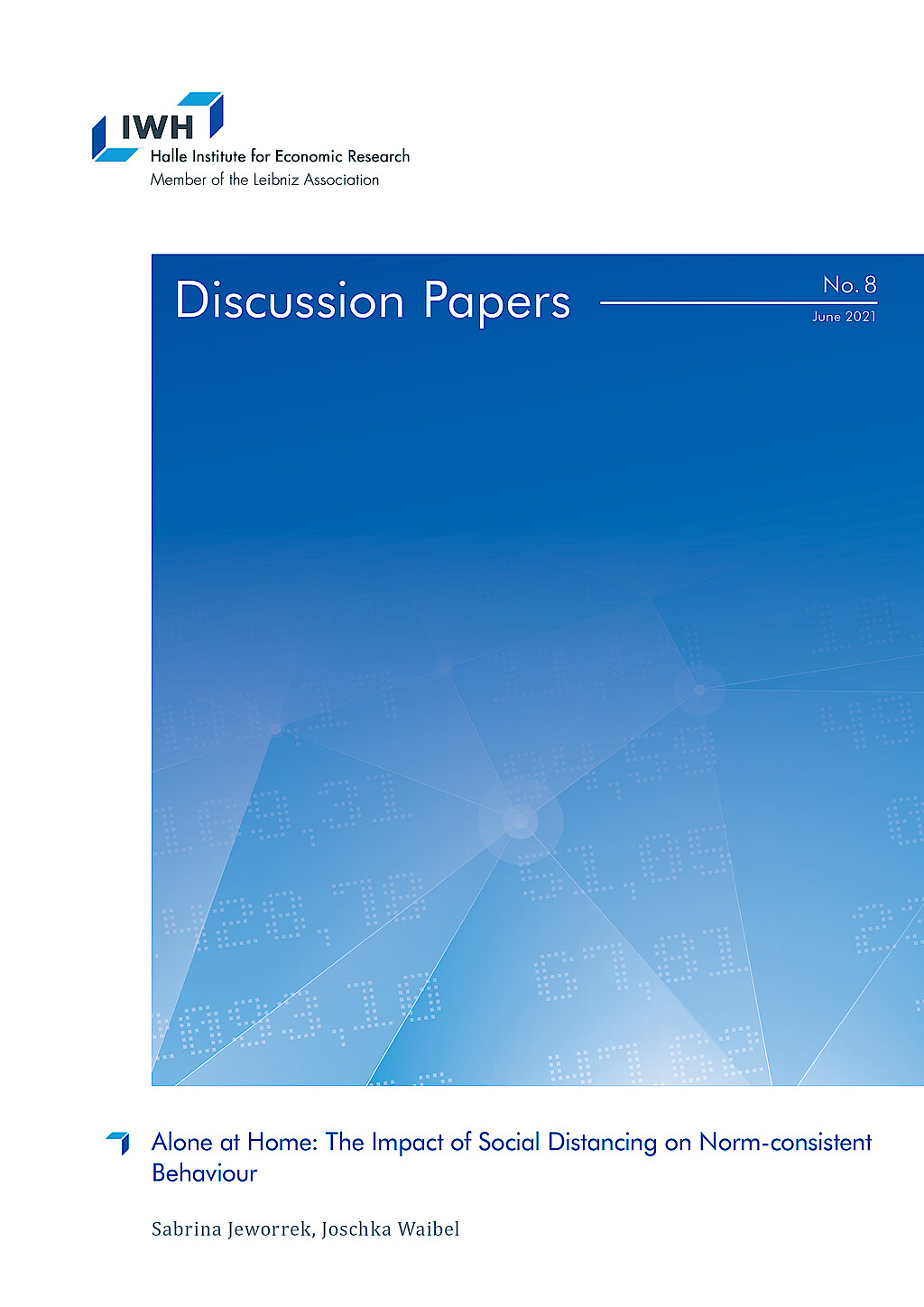
Alone at Home: The Impact of Social Distancing on Norm-consistent Behavior
in: IWH Discussion Papers, Nr. 8, 2021
Abstract
Around the globe, the COVID-19 pandemic has turned daily live upside down since social distancing is probably the most effective means of containing the virus until herd immunity is reached. Social norms have been shown to be an important determinant of social distancing behaviors. By conducting two experiments and using the priming method to manipulate social isolation recollections, we study whether social distancing has in turn affected norms of prosociality and norm compliance. The normative expectations of what behaviors others would approve or disapprove in our experimental setting did not change. Looking at actual behavior, however, we find that persistent social distancing indeed caused a decline in prosociality – even after the relaxation of social distancing rules and in times of optimism. At the same time, our results contain some good news since subjects seem still to care for norms and become more prosocial once again after we draw their attention to the empirical norm of how others have previously behaved in a similar situation.







